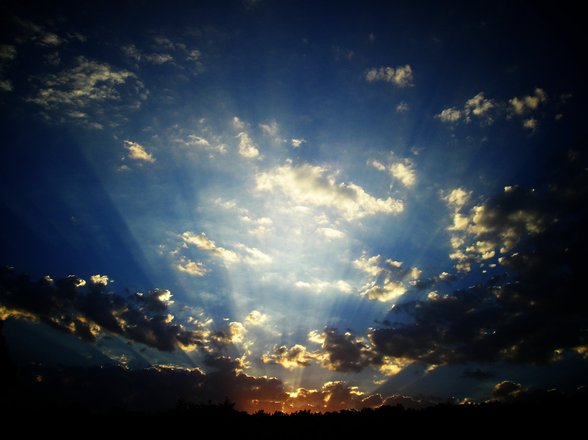
Divine Revelation Is More than Words

By Simon Appolloni, PhD, Editorial Director
As Christians, we don’t always think of there being two books of revelation. But there are: one the word of God found in Scriptures, and the other, creation.
Think of it. Who among us has not looked up at a starry night – away from city lights – and marveled at the sacred dimension of the universe? Who can honestly say that the fluttering of a hummingbird, or the eruption of a volcano does not awaken us to the presence of the immense, powerful, and beautiful that is God’s creation?
Unfortunately, and for far too long, many Christians have tended to downplay or even ignore creation as revelation. The result of the shunning of this ‘book’ has been disastrous: we denude mountaintops, destroy living soil, and pollute waters, all the while seemingly thinking nothing of it. Pope Francis puts it well when he tweets that we have made Earth “look more and more like an immense pile of filth” (18 Jun 2015).
The irony here is that Scripture underlines that we are made from dust and shall return to dust (Gen.: 3:19). St. Athanasius (296-373) emphasized that Christ, as Logos, is not only present to all parts of creation, but through his incarnation actually becomes a part of creation, as a fully human being. And St. Thomas Aquinas wrote, “A mistake about creation means a mistake about God.”
None of us would ever think of desecrating the Bible. Then why do we do so to God’s creation, which God said is “very good”?
We can turn things around.
Ecological thinker and Passionist Priest Thomas Berry once suggested that we ‘shelve’ the Bible for a little while, so as to re-adjust our sights on the other book of revelation. No need to get our knockers in a twist. He was not desecrating the Bible, just trying to make an important point: that we need to re-balance how we approach divine revelation.
How might we get that balance back? As we celebrate the Feast of St. Francis, our patron saint of ecology – who himself praised God through creation – let’s go outside, watch a sunset, feel the rain, count the stars, listen to the birds, and touch the mud. We shouldn’t be surprised that in the process we find ourselves in awe, longing to shout our praise to God in gratitude.
